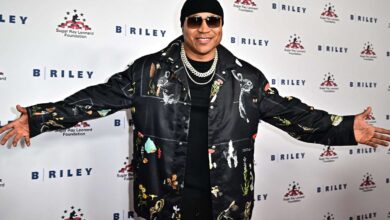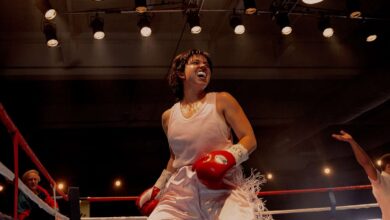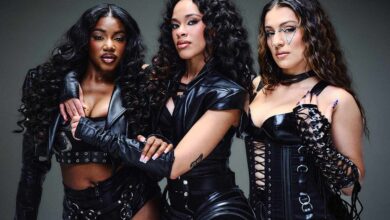What Happened to the Former Teen Tennis Star? (Exclusive)
:max_bytes(150000):strip_icc():format(jpeg)/jennifer-capriati-then-now-1992-9325-7baa80cff494471a8f655c52c3d9e3f4.jpg)
NEED TO KNOW
- Jennifer Capriati was the second-youngest women’s professional tennis player of all time when she entered her first tournaments in 1990
- At age 16, she won Olympic gold, but soon after her career was dragged down by scandal
- Capriati had a big comeback in the 2000s and ultimately won three majors before stepping out of the spotlight
Back in 1990, Jennifer Capriati burst onto the women’s tennis scene when, at 13 years and 11 months, she became the second-youngest player ever to make their professional debut.
Over a decade later, she finally won her first Grand Slam, a victory that capped off an incredible comeback. Since playing her last professional matches in 2004, the former player has stayed out of the spotlight.
A tennis source tells PEOPLE of the former superstar, “She needed to get away from the celebrity side and do her own thing. She tries to stay out of the public eye but still keeps up with the tennis world.”
Capriati’s Early Success
Capriati was born in New York City in 1976. Her parents, Stefano and Denise, noticed her tennis potential at a young age. “She was always playing around with the balls and racket,” Stefano told PEOPLE in 1991. “So when she was 3½ , I said, ‘If you like so much to play, you hit the ball this way.’ ”
A year later, the family moved to Lauderhill, Fla., and Capriati began training under Jimmy Evert, the father of tennis legend Chris Evert. Jimmy told PEOPLE, “She just struck me as having a lot of raw talent. She was a bubbly child.”
Professional Sport/Popperfoto via Getty
The family moved to Wesley Chapel, where Capriati trained at the Harry Hopman/Saddlebrook International Tennis Center beginning at age 10. Coaching director Tommy Thompson told PEOPLE that he had to be careful not to mess up her natural skills, explaining, “She plays on adrenaline and emotion. You don’t want to cloud that with strategy.”
When Capriati made her professional debut in 1990, she reached the finals in two of her first three pro events. She also scored her first two wins over top-10 players, and that April she entered the rankings at No. 23. She quickly found endorsement deals as well.
When PEOPLE checked in with Capriati in 1991, she said part of what she’d learned in her ealy days as a pro was to be meaner. “On the tennis court I can’t be nice,” she said. “I say to myself, ‘Come on, you don’t want to lose. Fight back!’ I like fighting.”
Capriati became the youngest player to reach a tour final, the youngest player to reach the semifinals at the French Open, the youngest seed ever at Wimbledon, the youngest player to reach the top 10 and the youngest player to qualify for the season-ending championships. She was named the WTA Newcomer of the Year for 1990.
In 1992, she won Olympic gold at the Barcelona Olympics, defeating Arantxa Sánchez Vicario in the semifinals and Steffi Graf, the top seed, in the gold-medal match.
Her father was her full-time coach and manager. “Everybody wants some piece of her,” he told PEOPLE. “But I know when enough is enough. I’ll be, as you say, ‘the bad guy.’ “
Bob Thomas Sports Photography via Getty
Capriati’s Troubled Teen Years
Capriati lost in the first round of the 1993 US Open and took a break from the sport. She played only one match in 1994 and none in 1995. “She was the girl-next-door with a great smile who could sweep the world off its feet,” Paul McNamee, her coach in 1993, told PEOPLE in 2001. “But Jennifer couldn’t live that fairy tale, so she exited.”
In 1993, Capriati, then 17, was stopped in a Tampa mall for allegedly shoplifting a $34.99 ring. The case was dismissed. A year later, she was arrested in a Coral Gables hotel room and charged with possessing marijuana. She spent 23 days in a Miami Beach rehab center.
Her parents also divorced in 1995. Stefano told PEOPLE in 2001, “We learn to be parents almost as on-the-job training; they don’t give us manuals.” During the mid-90s, he was often criticized in the press for putting too much pressure on his daughter.
“Jennifer is a classic example of a child prodigy not always given the right tools to handle her popularity, fans or success,” a Florida source tells PEOPLE. “It was nobody’s fault but over the years she has had to deal with the difficulties of being a superstar, and all of the bad vibe that goes with it.”
Capriati’s Comeback
As Capriati returned to her tennis career and found success, she had both her parents at her side.
“He’s changed, I’ve changed, and it’s good now,” Denise told PEOPLE, adding, “Jennifer and I are a lot closer now. I’m her mom and her friend.”
She began playing professionally again in 1996, and in 1998 she won her first singles match at a major in five years at Wimbledon.
Paul Popper/Popperfoto via Getty
At the 2001 Australian Open, she became the lowest seed ever to win the championship as she beat Martina Hingis to secure her first Grand Slam. “People who don’t even know me were so supportive,” she told PEOPLE after she won. “I felt the support growing even in the first round, and it helped me realize that, ‘Yes, I can win this, I can go all the way.’ And I did.”
“Now we can put those negative comments behind me,” she said. “I’ve always said that this is the real me.” She avoided discussing her past in interviews during the rest of her career.
Capriati went on to win the 2001 French Open and the 2002 Australian Open. After winning the French, she was ranked No. 1 in the world, a ranking she held for 17 weeks. She also competed in mixed doubles at the Grand Slams in 2001 and 2002 with her brother Steven.
Stephane LENHOF/Gamma-Rapho via Getty
Capriati’s Retirement from Tennis and Life Now
Capriati remained a mainstay in the top 10 until 2004, when injuries began to affect her career. She told The New York Times in 2006 of not being able to play because of her injuries, “I wake up every day, and my life has totally changed.” She said she felt “stuck” as she wondered if she should try to return to tennis.
She finished her tennis career with a 430-176 record, 14 singles titles and one doubles title. She was inducted into the International Tennis Hall of Fame in 2012.
Since retiring, Capriati has remained mostly out of the spotlight. In 2010, she was treated for a drug overdose; her spokeswoman called it an accidental overdose of medication prescribed by her personal physician. In 2013, her ex-boyfriend Ivan Brannan Jr. accused her of stalking and punching him. In January 2014, battery and stalking charges were dropped after she completed 30 hours of community service and four hours of anger management counseling, per NBC.
Rob Prange/Shutterstock
Capriati, who lives in Florida, has continued to avoid interviews. In 2018, she made a rare appearance at the BNP Paribas WTA Finals Singapore. A second source tells PEOPLE they think Capriati will find a way to stay involved in tennis.
“She loves the game whether its on the court or behind the scenes,” the source says. “I think she will be around the game for the foreseeable future.”
She remains active on X, where she often shares her thoughts about tennis. In March 2024, she replied to a message denying the claims she “burned out” because she was “overplayed” and her father, who died in 2015, pushed her too hard. She wrote, “I was not overplayed, I just got to the finals and semifinals of most tournaments and grand slams, I didn’t have to play more. I didn’t burn out, I said no more to the abusive press and what they were trying to provoke and lie about. 30 years later and still have to hear the bs.”
She said in another post that her dad was treated like ones who “physically, verbally and emotionally beat their daughters.” She said, “My father was a teddy bear with a heart of gold.”
That same month, she wrote to her followers, “I just came on here to say I love you all from the bottom of my heart, for the support and love expressed means so much to me. I can’t get to you all but this is my thank you.”
In response to a fan who thanked her for the “exciting sports entertainment” she made, she wrote, “Ok I’m going to cry, no crying today. These are the reasons why I did it, for those that never gave up on me and to inspire those to never give up when it all seems hopeless and impossible. There is no such thing as failure when you have the courage to try to do your best.”
Credit to Nypost AND Peoples



